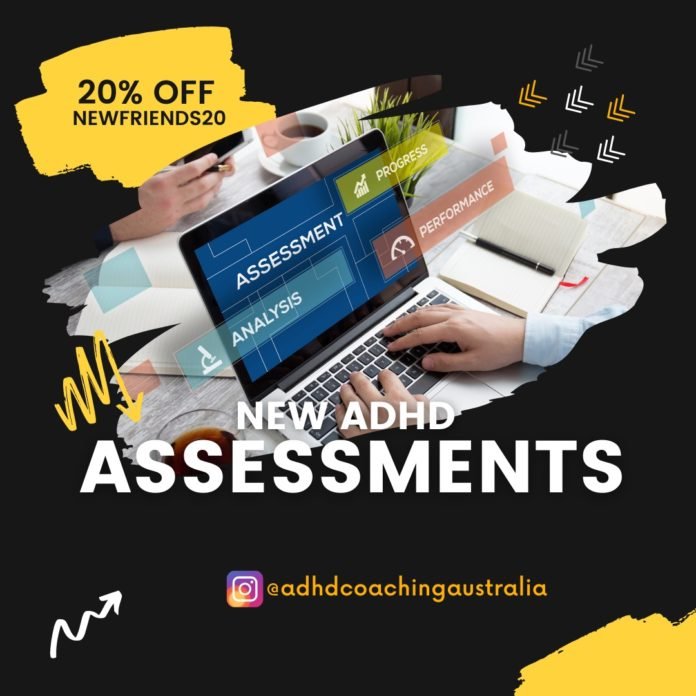
Assessment is the key to improvement; How assessment (Self-Assessment) helps in ADHD?
A variation in brain activity impacts a child with ADHD’s ability to focus, among many other things. Millions of kids are affected, and if remaining unattended, it can lead to maturity. ADHD Self-Assessment Tests are helpful to see if you suffer from the behavioral symptoms of ADHD. As ADHD manifests itself in a variety of ways in both children and adults, a quick ADHD self-test might help you figure out how much you or a close one suffers from symptoms of Attention Deficit Disorder.
Assessment of Attention Deficit Hyperactivity Disorder: Current Tools and Their Limitations
ADHD assessments are carried out by a range of experts, including but not limited to:
- Psychologists who specialize in clinical psychology
- Psychologists who work in schools
- Neuropsychologists
- Psychiatrists
- Neuropsychologists
- Pharmacists and neurological doctors are two types of pediatrics.
- Internists and family doctors are two types of doctors
What Types of ADHD Self-Assessment Tools can be used?
There is a variety of ADHD assessment scale which can be used to help identify and track therapy progress. Teachers and parents can be given the Weaknesses and Strengths of ADHD Signs and Normal Behaviour Evaluation Forms for their assessments of the kid. This is freely available online and has been confirmed in Chinese. The ADHD rating system (ADHD-RS) and Cashiers’ scale score are two more testing methods. These assessment methods, on either hand, may not be freely available online and can assess other elements of a children’s actions, such as the presence of other diseases. The Adult ADHD Identity Scale (ASRS) is an effective assessment method for adults.
Assessment of ADHD Using Evidence: False Positives and False Negatives
Using a scientific proof assessment that includes compliance to the DSM-5 clinical guidelines as well as the inclusion of multi-informant/multimethod methods, irrespective of the healthcare expert tasked with diagnostics possible ADHD, is a very well and arguably gold usual method. To guide and increase confidence with medical impressions, such tools should incorporate empirically validated studies and, when feasible, test data about key clinical groups.
An overarching goal of all evaluation measures is to improve the instrument’s sensitivity and specificity. The capability of a test, such as a rating system, to accurately identify people with the disease is referred to as sensitivities, whereas the capacity of a test to correctly identify anyone without the disease is known as precision. These statistics are particularly worrisome in the case of ADHD, given the long effects.
Diagnostic assessments that are incorrect have real-world consequences. A negative test may obstruct correct care (e.g., academic/occupational).
What is Self-Assessment and how it helps in ADHD?
Besides, these complex and long questionnaire sessions by professionals, to evaluate your ADHD state, there also come some self-assessment tools by various expert and qualified ADHD professionals. These self-assessment tools help provide you with the important information and the relevant evaluation of your condition, and what is more, you can once buy and use it feasibly all by yourself. The benefits include,
- Self-assessment can assist reveal gaps in pupils’ learning and provide understanding into their genuine grasp.
- Empowering learners to reflect on their training and levels of knowledge can be a useful ‘actually woke call,’ highlighting areas where they need to develop.
- Learners must analyze new information in the context of their prior experiences when commenting on what they have learned.
Self-assessment tools provide a way to obtain information about yourself so that you can quickly choose a profession that meets these criteria.
The following are important aspects of self-assessment tests:
- • Your values are the things that are most essential to you.
- • What you like doing the most are your interests.
- • Personality refers to your unique characteristics, interests, emotions, and goals.
- • Aptitude – Actions that you specialize in, whether you were born with them or learned them.
Assessment Tools by ADHD Coaching (Australia):
ADHD coaching Australia aims to create a safe non-judgmental environment that supports you in the process of self-exploration, as well as fosters self-efficacy, self-belief, commitment, and personal accountability. With the help of qualified and experienced, they have created assessment tools for all users. These have been shown to enrich groups or individuals with the company’s fantastic web-based tools and coaching resources.
The Qualitative ADHD assessment tool is one of the best combinations of favorable and non-favorable adult ratios. (Carried out a meta of observational studies, the Strength of Recommendation.) In elementary school-aged children, the Nashville ADHD Diagnostic Educator and Parental Evaluations show moderate specificity and sensitivity. If you want to have a try, the assessment tools’ cost varies from $249 to $349 for different features. Besides, there is also a kids’ discount package at $149 only. You can visit the respective website (https://adhdcoachingaustralia.com.au/assessments/) for more details and buying.
References and Citations:
